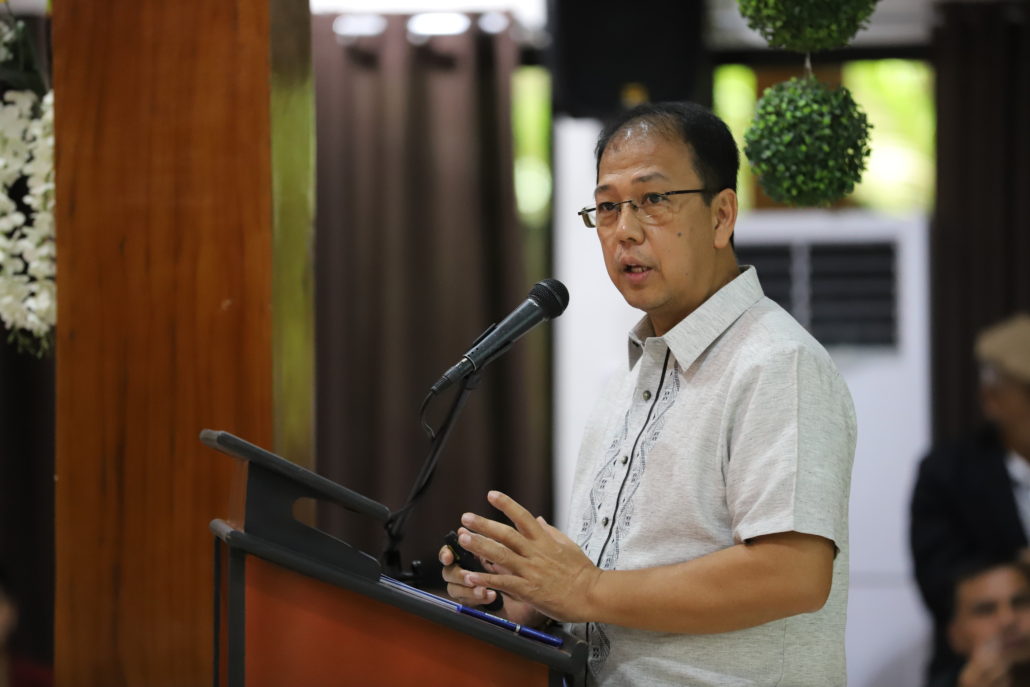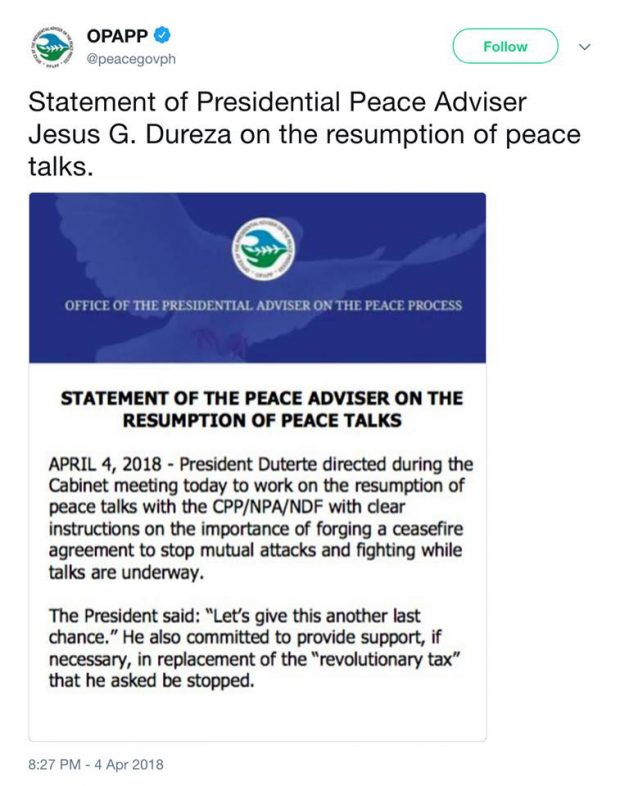NDFP: OPAPP irrelevant and anti-peace under Galvez
The Office of the Presidential Adviser on the Peace Process (OPAPP) has betrayed its mandate to push for peace and had been irrelevant for a long time, the National Democratic Front of the Philippines (NDFP) said.
“Instead of promoting peace negotiations, OPAPP has been demonizing the revolutionary forces, as well as the Chief Political Consultant of the NDF, Prof. Jose Maria Sison, with worn out lies long debunked by fact and evidence, NDFP Negotiating Panel chairperson Fidel Agcaoili in a statement, Thursday, February 6, said.
Agcaoili added OPAPP is acting against the interest of the Filipino people who have been clamoring for the resumption of peace negotiations between the NDFP and the Government of the Republic of the Philippines (GRP).
The NDFP blames presidential peace adviser and retired Armed Forces of the Philippines (AFP) chief of staff Carlito Galvez Jr. for turning OPAPP into the military’ psychological warfare machinery.
It said the OPAPP now denies the existence of the armed conflict between GRP and NDFP forces, particularly the New People’s Army (NPA).
In an article published on the OPAPP website Saturday, February 1, Galvez alleged Sison and company are working overtime to sabotage the GRP’s anti-communist insurgency programs for fear of becoming irrelevant.
“The armed struggle has no legitimacy in a civilized society. Armed violence is an anathema of peace and development, and the CPP (Communist Party of the Philippines)-NPA should be disbanded,” Galvez said.
The NDFP retorted that all Galvez had been consistently doing is attacking peace process and all signed agreements between the GRP and NDFP.
The group added Galvez even terminated the appointment of the members of the government’s negotiating panel and the services of its Joint Secretariat in the Joint Monitoring Committee, the office tasked to oversee the implementation of thr GRP-NDFP Comprehensive Agreement on Respect for Human Rights and International Humanitarian Law.
“Just as the call for the resumption of the peace negotiations is gathering strength and the Duterte regime appears prodded back to the negotiating table, OPAPP seems hell bent on derailing every effort to resume the peace talks,” the NDFP said.
“OPAPP has long lost all credibility as it is exposed to be sinister, corrupt and a saboteur of the Filipino people’s aspiration for a just and lasting peace. It has indeed become irrelevant,” the group added.
The NDFP also slammed OPAPP’s latest press release proclaiming the so-called successes of President Rodrigo Duterte’s Executive Order 70 creating the National Task Force to End Local Communist Armed Conflict (NTF-ELCAC).

Presidential peace adviser Carlito Galvez Jr. (OPAPP photo)
State terrorism and corruption
The NDFP said NTF-ELCAC is an integral part of the government’s counter-insurgency program Operation Plan Kapanatagan that has been “terrorizing and wreaking havoc on communities through sustained military operations.”
The group said EO 70’s other human rights violations include indiscriminate aerial and artillery bombardments of villages, assasination of civilians, illegal arrests, detention and torture of suspected NPA sympathizers, and with hunting or red-tagging of churches and organizations as well as their leaders.
But aside from unleashing state terrorism on the people, the NDFP said the NTF-ELCAC is rife with corruption.
“With a P21 billion budget, the NTF-ELCAC, under the rubric of localized peace talks and the Enhanced Comprehensive Local Integration Program (E-CLIP), has been devising all sorts of money-making schemes to line the pockets of military and police commanders and local bureaucrats,” the NDFP said.
According to the NDFP, implementers of the task force also commit the following:
1. Buying off (with kickbacks) city and municipal councils into declaring the NPA persona-non-grata in their areas;
2. Manufacturing fake surrenderees to obtain the reward and integration monies (as recently exposed in the photoshopped picture of previous surrenderees and the alleged surrender if Alde Salusa, a military agent who killed anti-mining activist Datu Jimmy Liguyon);
3. Appointing paramilitaries Alamara and New Indigenous People’s Army to local councils that extend permit fees to mining and logging companies as well as multinational agribusiness corporations for the exploitation of ancetral lands; and
4. Renegotiating a bigger amount of “settlement” with the previously surrendered and paid Rebolusyonaryong Partidong Manggagawa ng Pilipinas/Revolutionary Proletarian Army/Alex Boncayao Brigade-Tabara Paduano Group in a new agreement called Clarificatory Implementing Document. # (Raymund B. Villanueva)

